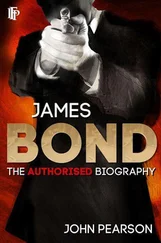One night the Houston Sisters were on, Renée and Billie. Renée looked so sweet and attractive that I stood there entranced. Then she came off and said a few sharp things to the man who was handling the lights. She really gave him the works and I was twenty-five before I knew what all the words meant. It was a shock for a lad of eight wearing his school cap, imagining he was in some wonderful fairyland until – whoosh! That lovely creature came bursting into the wings and shattered all his illusions. Renée was right, though. That man was making a pretty fair hash of the lighting.
Few performers made a greater impression on him than the traditional double act Clapham and Dwyer, who claimed a complete paragraph in his jottings:
It may sound strange now when my own line of comedy is so remote from anything they ever did, but nevertheless that pair taught me the rudiments of the job. Charlie Clapham – in topper and monocle, again – was the funny one, a spry, scatterbrained whippet and quite a dog in every way. Billy Dwyer was the mastiff of the act, but in his solid fashion he was great fun. In fact, he bore out what I have always felt about these comedy partnerships; that the straight man is invariably much funnier than he is credited with being. In a way the Clapham and Dwyer relationship reminded me of Laurel and Hardy’s. I have always thought that Hardy was as funny as Laurel and Billy Dwyer used to amuse me enormously. I followed their act all over the place and often stayed with the Dwyer family. They may not always have wanted me but they got me just the same. Bill had an odd quirk of humour. When I arrived at his home he would say, ‘Goodbye!’ and tell me, ‘There’s a good train back at 6.30 tonight.’ Sometime I wonder whether he actually meant it, but I prefer to think it was one of his little jokes.
And then there was Sydney Howard, who was a movie star as well. If back then a cross between a soothsayer and a casting agent had been looking to replicate the Hancock of the future, they need have searched no further. His rotund build, his equally rotund speech, his ‘googly’ gait, his sense of comic mournfulness were all spot on. He too epitomised pomposity in the context of a frayed, shabby gentility. To watch him today in one of his most successful low-budget comedies, Fame , is a revelation. He plays the floorwalker in a department store. When a boy insults him, he goes to swipe him with his hand before thinking better of it and quickly converts the movement into an insincere pat on the head: one can almost hear a muted ‘Flippin’ kids!’ – the catchphrase that defined Hancock’s early radio success. At another point he asks a customer what kind of jumper she requires. Her answer is enough to send Howard off into the patriotic travesty of a bargain-basement Richard II: ‘A Fair Isle – this fair isle – this sceptred isle, this earth of majesty, this seat of Mars, this Eden, demi-paradise, this fortress built by nature for herself against infection and the hand of war, this happy breed of men, this little world, this precious stone set in the silver sea …’ and so on until the drapery department curtains come crashing around his head. Later Hancock would make his own comic capital out of the speech. There is no evidence that he saw the film, although it is exceedingly unlikely that he did not. But, crucially, any similarity is in the attitude.
On one of Howard’s visits to his parents’ hotel, Tony plucked up the courage to tell the great star he was keen to go on the stage: ‘He told me I would be crazy if I did. “Keep away from it, lad,” he said. “I wouldn’t let a dog of mine go into show business!” Then a pause, and Sydney said in his wonderful Yorkshire way, “But if you do get into it, let me tell you one or two things.” And he took me into a corner and showed me all sorts of tricks of timing and hand movements.’ It may have been the most important ‘lesson’ of his life. They met on at least one other occasion. When Tony was about ten years old the Hancocks and the Howards found themselves holidaying by chance at the same hotel in the South of France. The comedian and his wife made a fuss of the young Hancock, incongruously cocooned in his prep-school uniform as the Riviera sun streamed down. One day Sydney spotted a loose thread on the Eton jacket. He went to remove the offending strand. As he pulled it away, it just kept coming. The other end, far away, was on a spool secretly threaded through from Tony’s pocket. Hancock may well have picked up the gag from Chaplin’s City Lights , a film that had a life-long impact upon him, although its origins are probably enshrined in the annals of the practical joke. ‘You’ll go far, my son,’ said the astonished comedian with a gleam of surprise in his eye.
One mealtime during this holiday Tony was served a whole fish, complete from head to scaly tail. According to his mother he took one look at the lifeless eyes of the forlorn creature staring up from his plate and declared, ‘I’ll stick to good old bread and fromage , thank you.’ It is good to know that his father was able to witness his son’s slowly emerging comic style. To Tony, his father shared something of the vitality and example of his famous friends and provided that last zing of incentive for him to pursue his chosen path. Ultimately he needed no other justification. When he was nine, his dad pulled strings to secure him a film test, although nothing came of it. Years later in his dressing room at the Adelphi Theatre he read out the letter of invitation to appear in the 1952 Royal Variety Performance to their mutual friend, George Fairweather. He burst into tears as he explained, ‘If only Dad could have been here.’ ‘He will be,’ assured Fairweather. ‘I wish I could be as sure,’ added Tony, extracting a promise that George would attend the gala evening in his father’s place.
To her credit his mother ensured that after his father’s death laughter continued to ring though the rooms of the family apartment at Durlston Court Hotel. The extent of the family’s capacity for letting its hair down has been conveyed in her memoir by Joan Le Mesurier, with Lily at the forefront of the hilarity: ‘When the family was all together they were always laughing. His brother Roger would try to climb up the wall. Tony would roll on his back and wave his legs in the air, and Colin would kneel on all fours, banging his fists on the ground, all of them fighting for breath.’ Roger recalls the roles somewhat reversed: ‘Tony literally climbed up the wall if he was hysterical, and we were hysterical a lot of the time.’ It extended into young adulthood when the brothers would send their impromptu parody of the popular panel game Twenty Questions spiralling into Rabelaisian heights – or depths. ‘What is mineral with an animal connection?’ ‘Could it be the spade up the dromedary’s arse?’ responded Tony with Isobel Barnett primness. According to his brother, he would become literally helpless with laughter at such sessions. A photograph survives from an earlier time showing Tony in the company of his mother, stepfather and two brothers. He is mugging self-assuredly at the camera without a care in the world.
In time he came to translate his conventional boyhood fantasies into his first comic material. As a very young boy he nursed an ambition to become the Wyatt Earp of a make-believe town he referred to as Toenail City. The upper precincts of the Railway Hotel rattled to the ricochet of toy-town gunfire. One Christmas he received the gift of a sheriff’s outfit from his parents. Later he complained about the pains in his legs. His mother admitted that only then did they discover that he had strained the muscles from walking around all day bow-legged. Roger recalls that with time he gave the fantasy the comic treatment in an early recitation entitled ‘The Sheriff of Toenail City’.
Читать дальше












